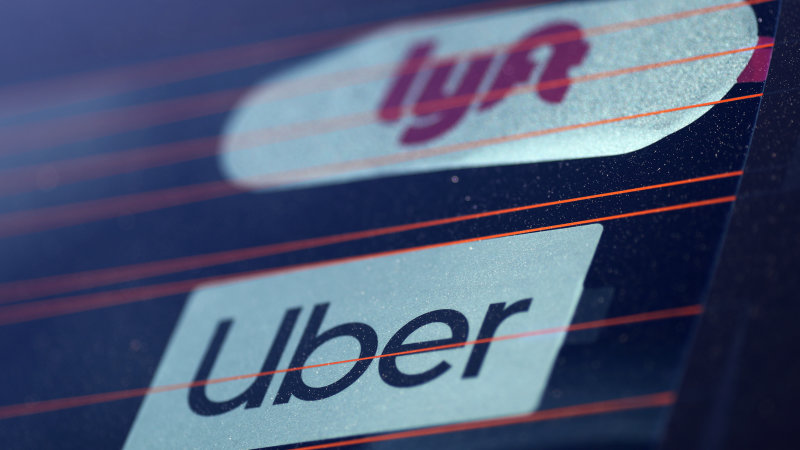Uber and Lyft are preparing to suspend their California taxi services from Friday morning unless an appeals court decides at the last minute that they cannot be forced to treat their drivers as employees rather than independent contractors.
Lyft said in a blog post on Thursday that it would suspend its operations in California at midnight.
Uber said in a blog post it should shut down temporarily unless the appeals court intervenes.
Lyft shares fell 6.2% to $ 26.41, while Uber shares fell 2.3% to $ 28.74.
The companies have sought the intervention of an appeals court to block a court injunction order from a judge last week. That ruling forced the companies to treat their drivers as employees from Thursday after midnight, but Uber and Lyft have said it would take months to enforce the mandate.
The court of appeal has not yet intervened.
The threat to suspend services in the most populous US state marks an unprecedented escalation in a long-running battle between US regulators, workgroups and gig economy companies that have overturned traditional employment models.
California, a state often seen as a leader in setting policies later adopted by other states, implemented a new law in January that makes it difficult for gig companies to classify employees as independent contractors.
A judge ruled on Aug. 10 that Uber and Lyft had to comply with the law starting Friday, requiring them to treat their drivers as employees entitled to benefits, including minimum wages, sickness benefits and unemployment insurance.
Uber’s fast-growing food delivery company Eats is not affected by the shutdown, the company said. Other gig economy companies, including DoorDash and Instacart, will also be able to continue to operate under the contractor model.
The shutdown comes at a time when ride demand has plummeted amid the coronavirus pandemic, with California being one of the states in the US with the slowest recovery, according to the companies.
California represents 9% of Uber’s global rides and gross bookings for Eats, but a negligible amount of adjusted earnings, Uber said in November. Lyft, which operates only in the US and does not have a food delivery company, said last week that California makes up about 16% of total rides.
Uber and Lyft say the vast majority of their drivers don’t want to be employees. The companies say their flexible on-demand business model is incompatible with traditional labor law and advocate what they call a “third way” between employment and contractor status.
Lyft, Uber, DoorDash, Instacart and Postmates are spending more than $ 110 million to support a November vote in California, Proposition 22, which would anchor their “third way” proposal and the bill of the state gig worker would overwrite.
Working groups reject companies’ claims that current labor laws are incompatible with flexible work schedules and believe that companies should follow the same rules as other companies. They say the companies’ vote would create a new underclass of workers with fewer rights and protections.
A August 9 poll of Californians by Refield & Wilton showed that 41% of voters intended to support the companies’ proposal and 26% are against it, with the rest still undecided.
